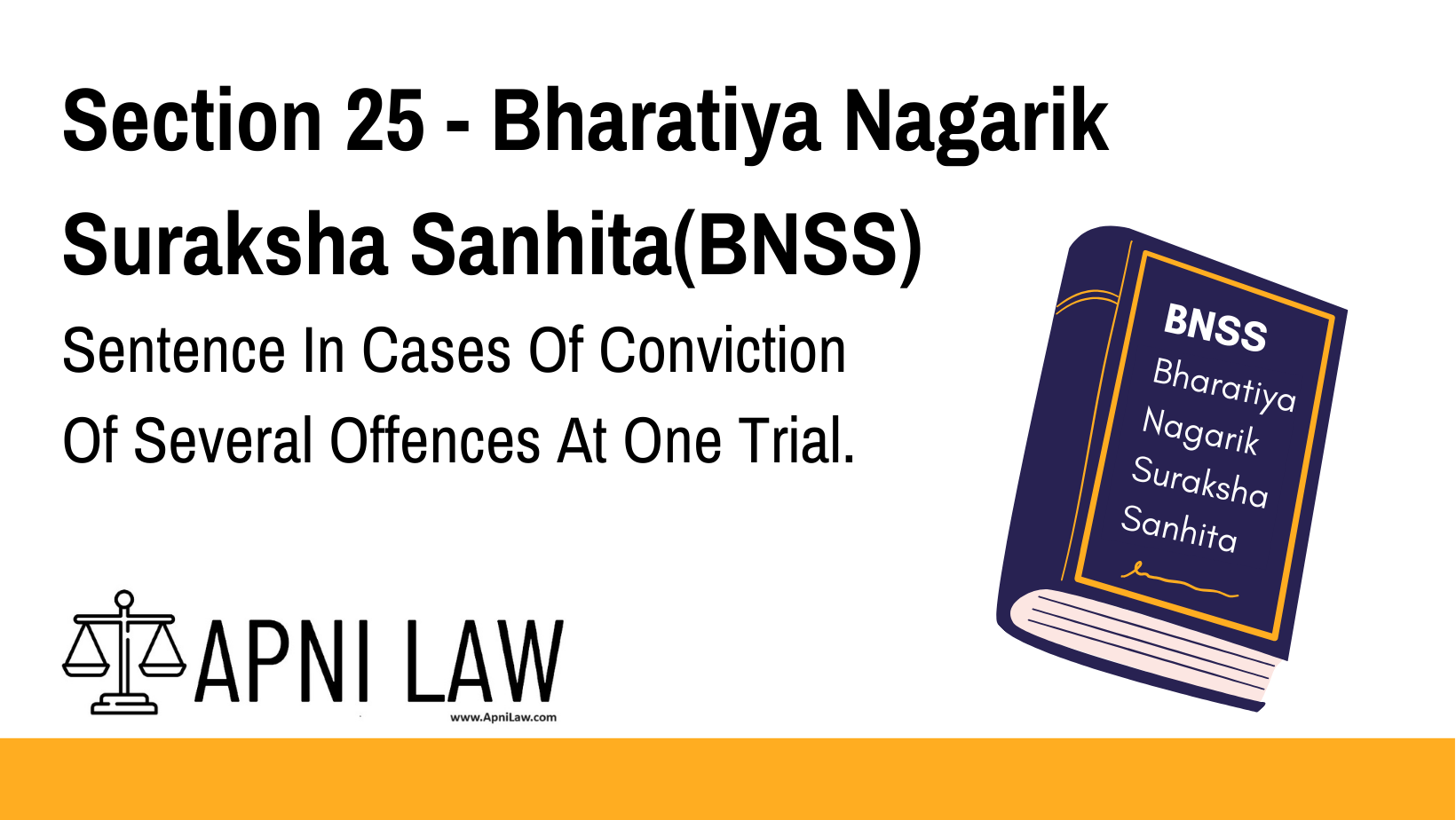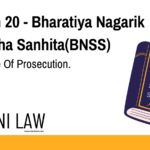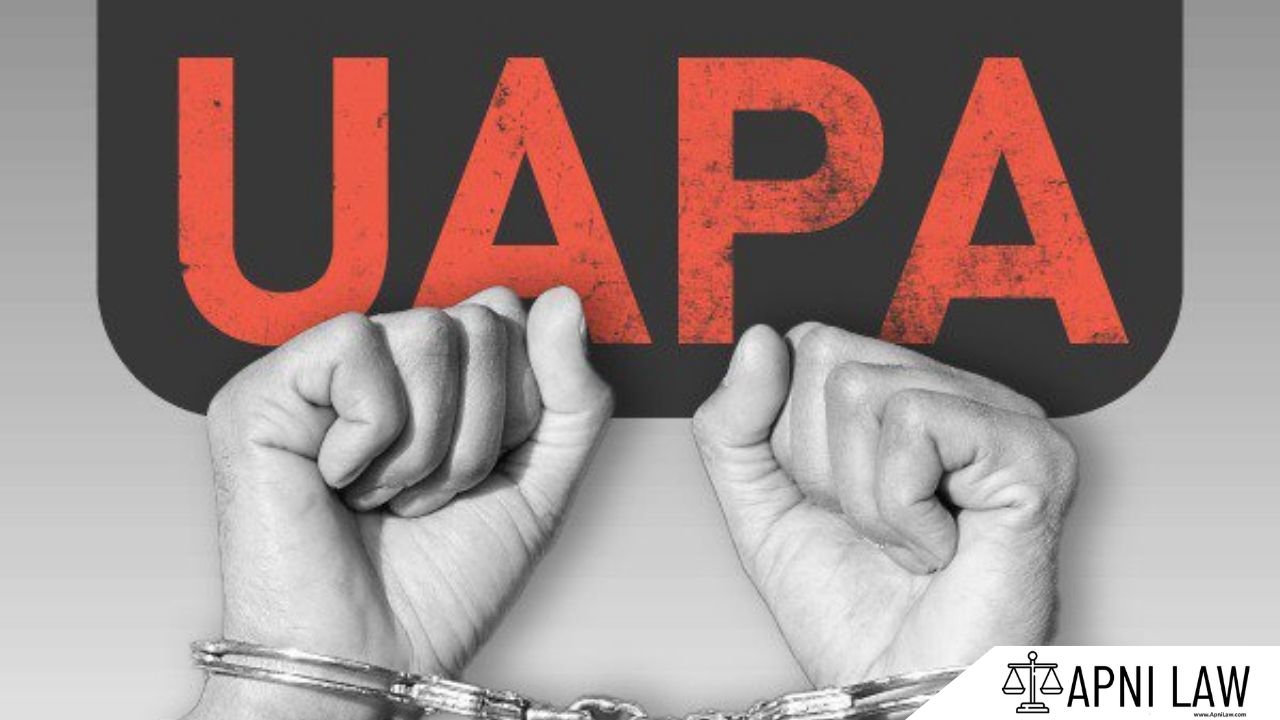(BNSS) Code 25: Sentence In Cases Of Conviction Of Several Offences At One Trial
This code deals with the sentencing of a person convicted of multiple offences in a single trial.
Code:
(1) When a person is convicted at one trial of two or more offences, the Court may,
subject to the provisions of section 9 of the Bharatiya Nyaya Sanhita, 2023, sentence him for such offences, to the several punishments prescribed therefor which such Court is competent to inflict and the Court shall, considering the gravity of offences, order such
punishments to run concurrently or consecutively.
(2) In the case of consecutive sentences, it shall not be necessary for the Court by
reason only of the aggregate punishment for the several offences being in excess of the punishment which it is competent to inflict on conviction of a single offence, to send the offender for trial before a higher Court:
Provided that—
(a) in no case shall such person be sentenced to imprisonment for a longer
period than twenty years;
(b) the aggregate punishment shall not exceed twice the amount of punishment
which the Court is competent to inflict for a single offence.
(3) For the purpose of appeal by a convicted person, the aggregate of the consecutive
sentences passed against him under this section shall be deemed to be a single
Illustration:
Suppose a person is convicted of theft (punishable by 3 years imprisonment) and assault (punishable by 2 years imprisonment) in the same trial. The Court can sentence the person to 3 years imprisonment for theft and 2 years imprisonment for assault. The Court can decide to make these sentences run concurrently (total imprisonment of 3 years) or consecutively (total imprisonment of 5 years). If the sentences run consecutively, the total punishment exceeds the maximum punishment for a single offence (3 years). However, under Code 25. (2), the Court does not need to refer the case to a higher court as long as the total imprisonment does not exceed 20 years.
Common Questions and Answers: on Sentence In Cases Of Conviction Of Several Offences At One Trial
Q: What happens if the total punishment exceeds the limits set by Code 25. (2)?
A: The Court will need to adjust the sentences to comply with the limits. This may involve reducing the duration of some sentences or making them run concurrently instead of consecutively.
Q: Can the Court impose a sentence that is longer than the maximum sentence for a single offence?
A: Yes, but only if the sentences are consecutive and the limits set by Code 25. (2) are not exceeded.
Q: What happens if a person appeals against the consecutive sentences?
A: The appeal will be considered as if it is against a single sentence, representing the total of the consecutive sentences.











